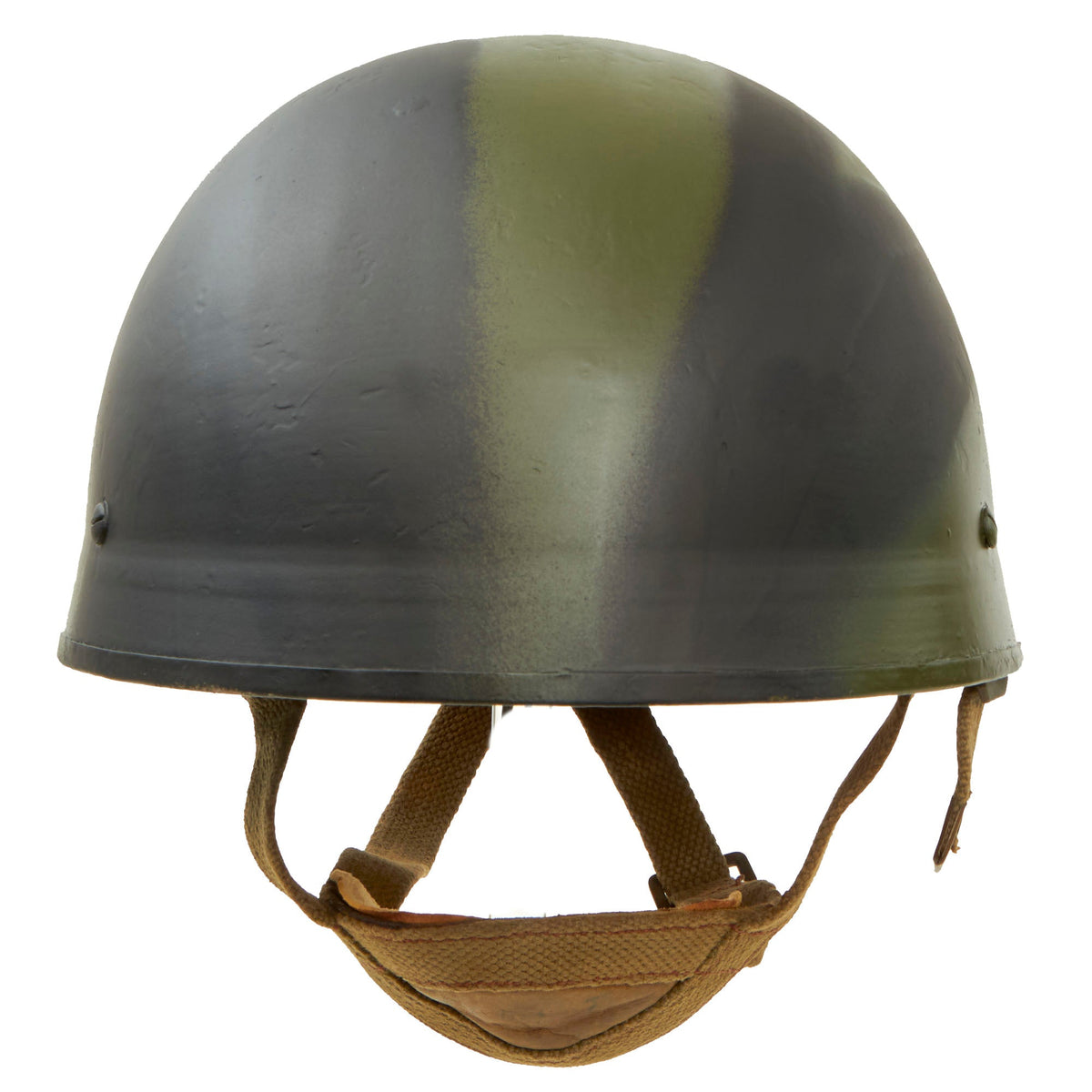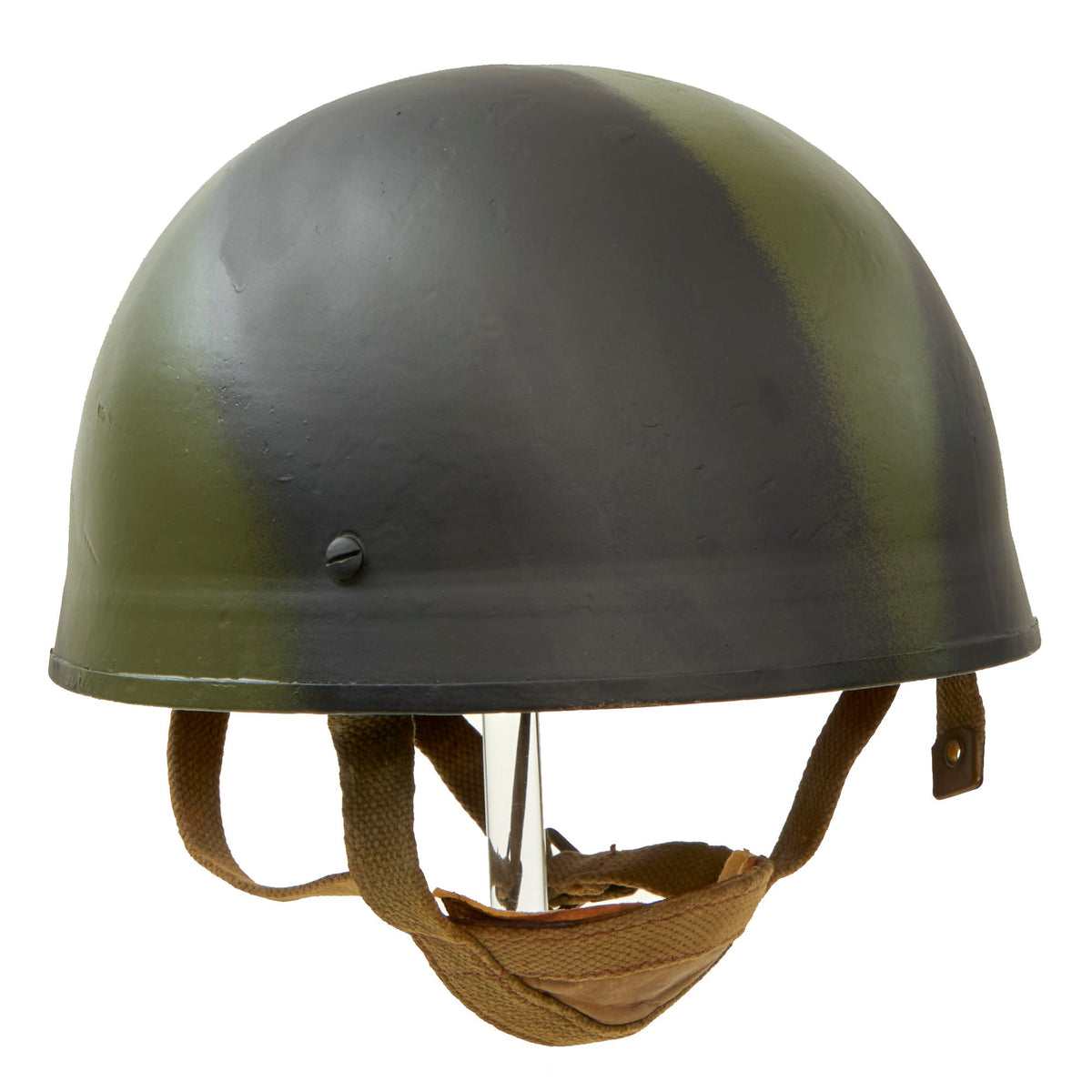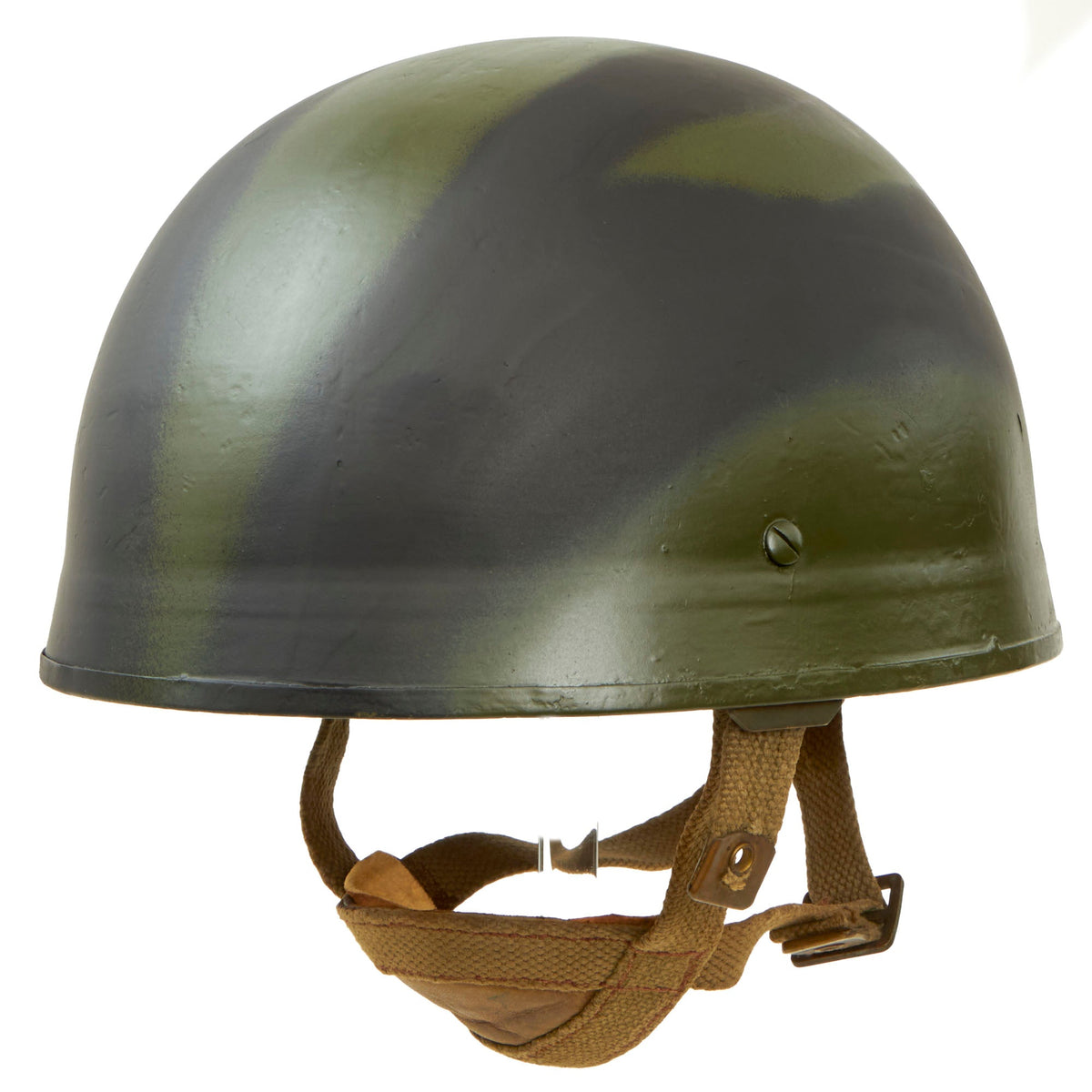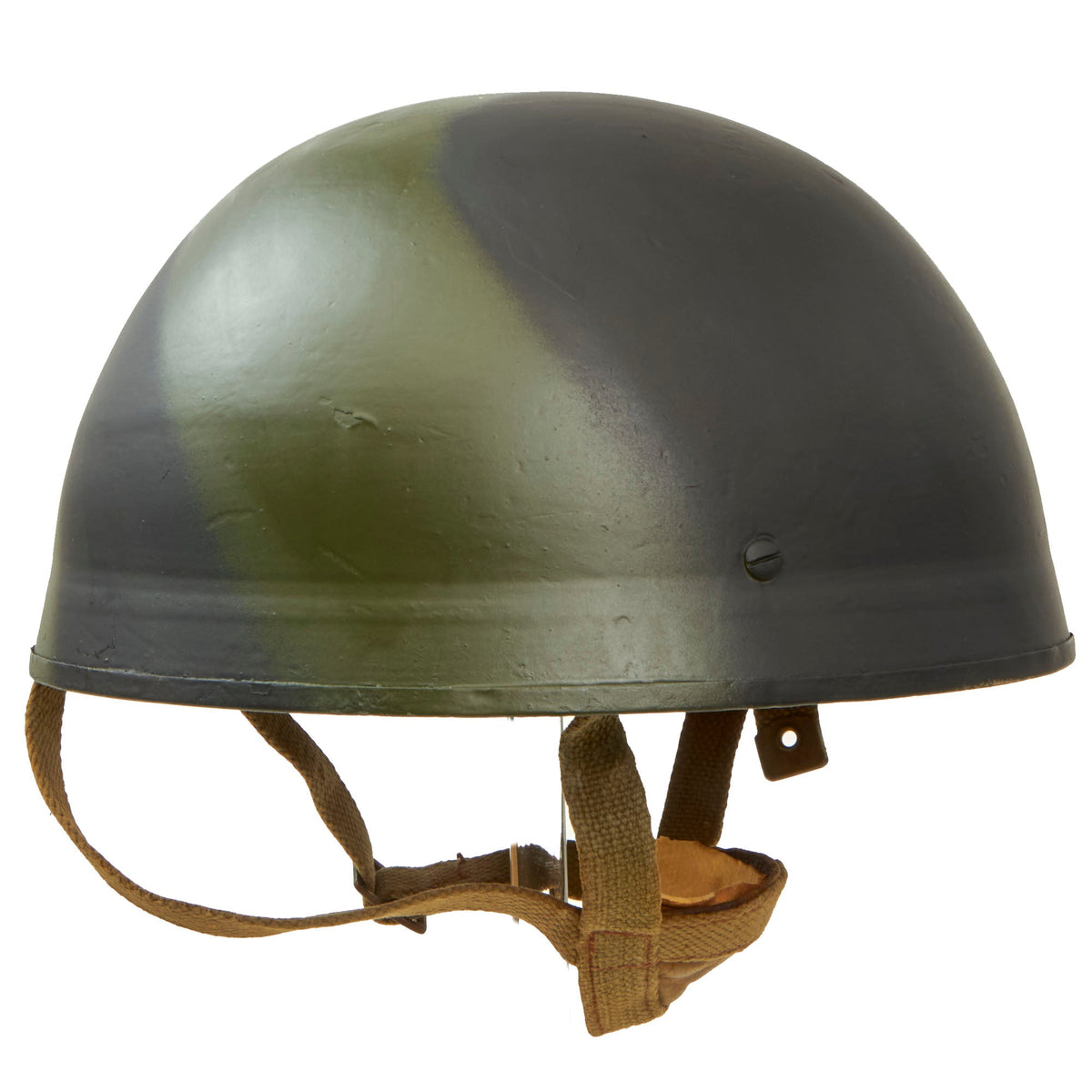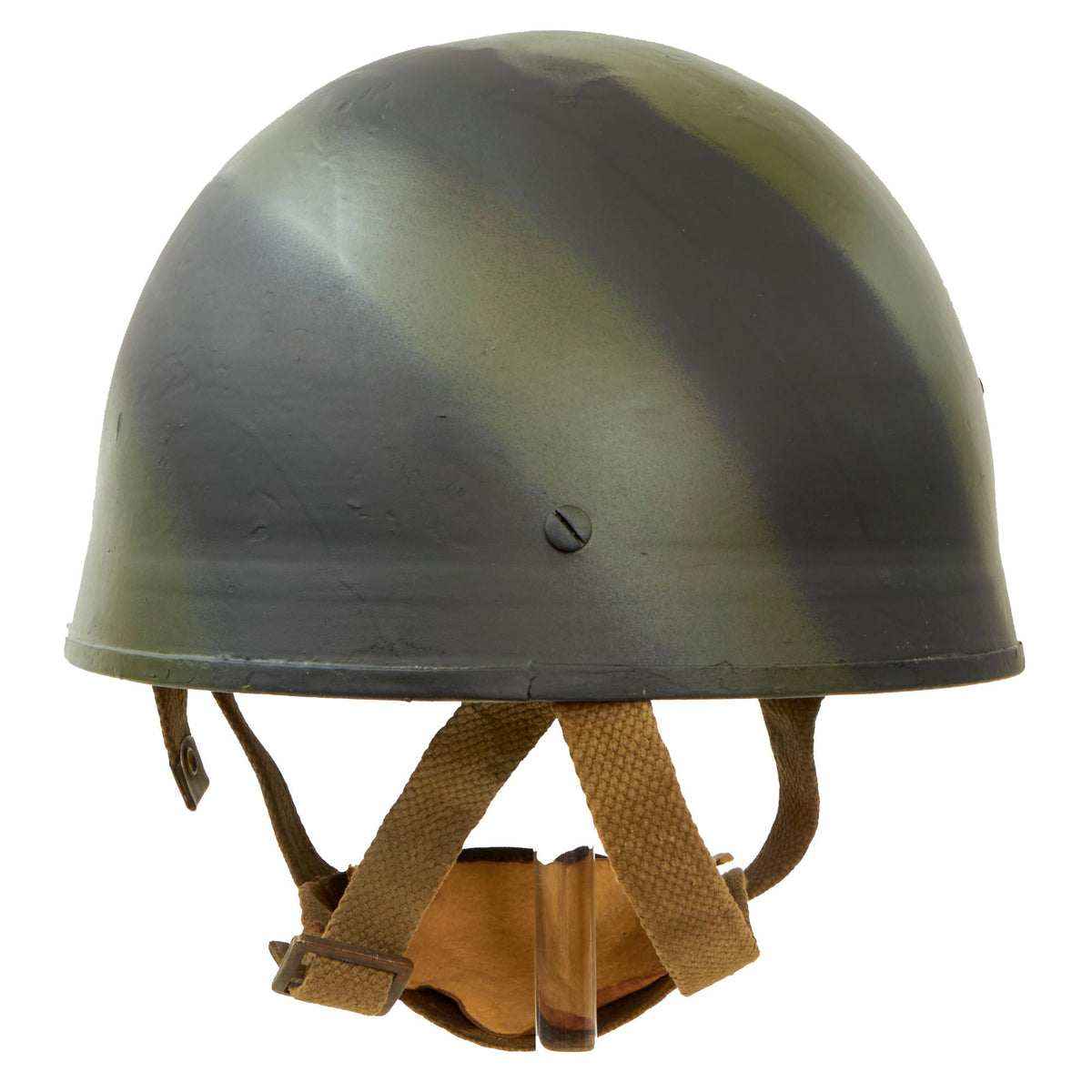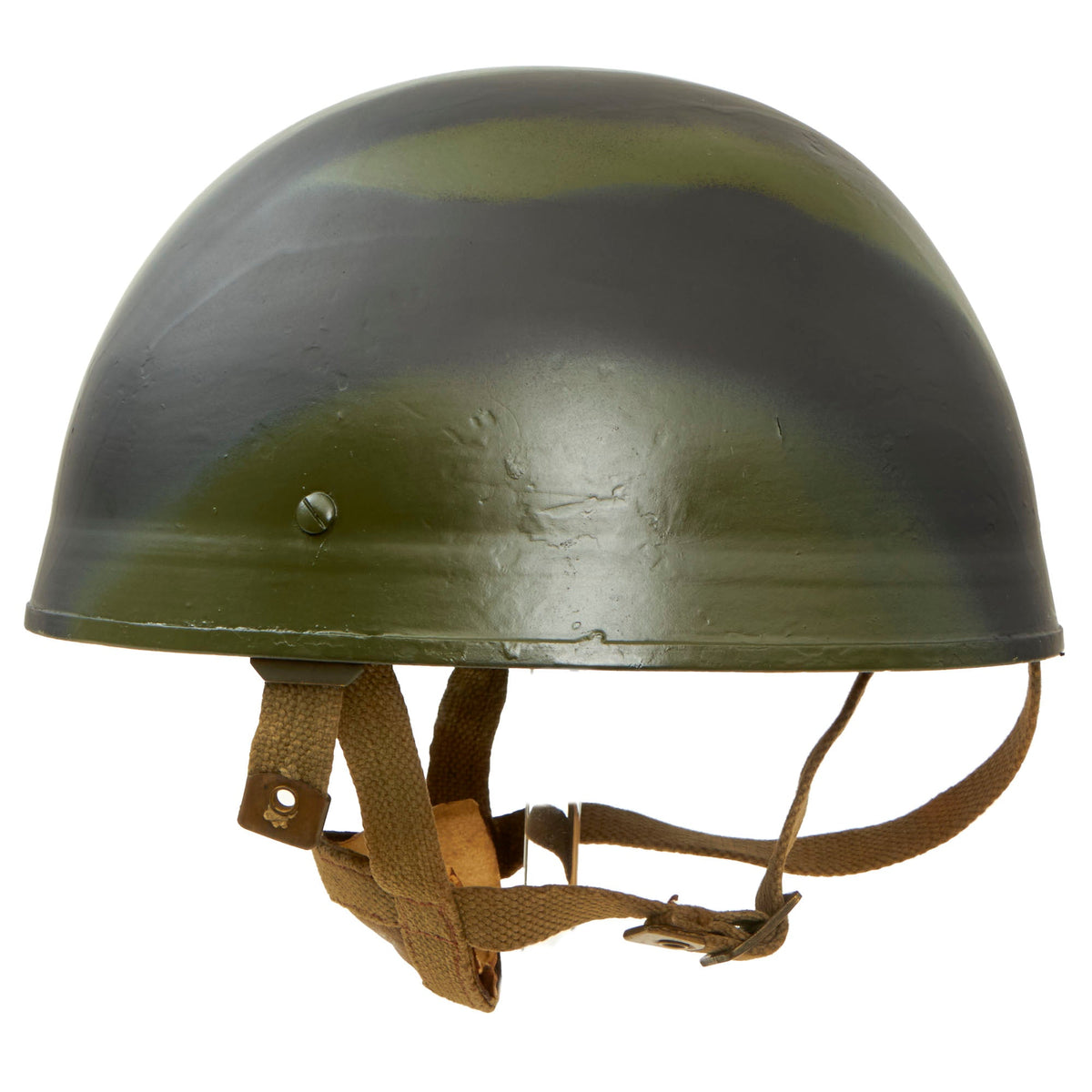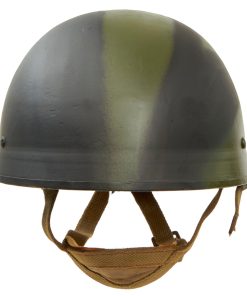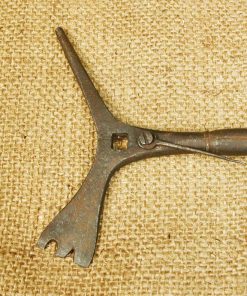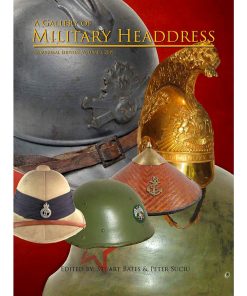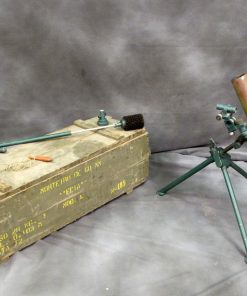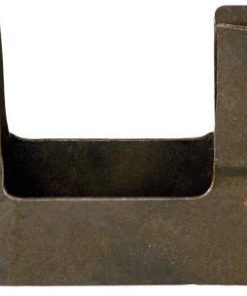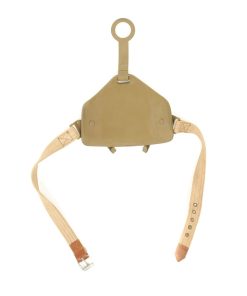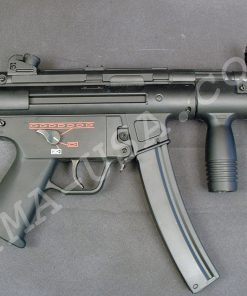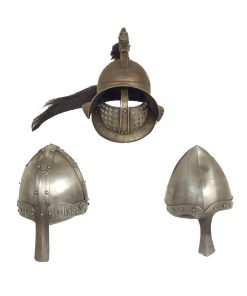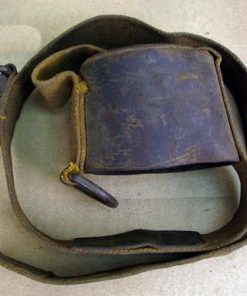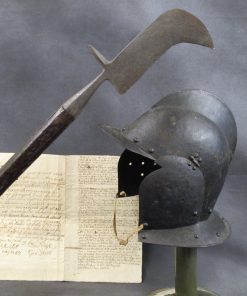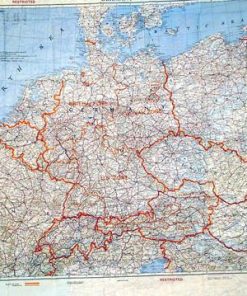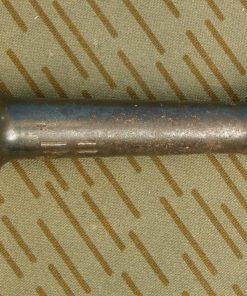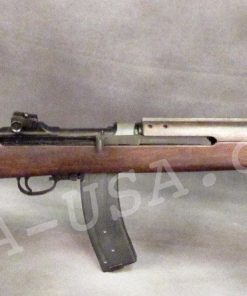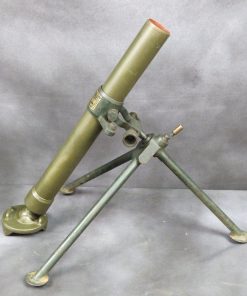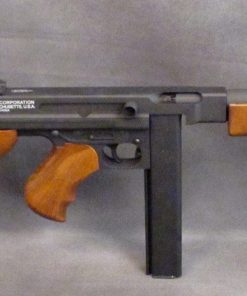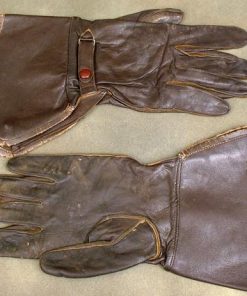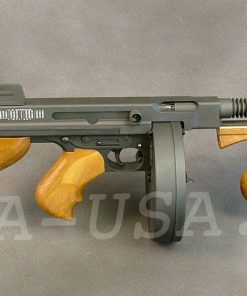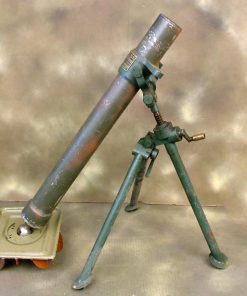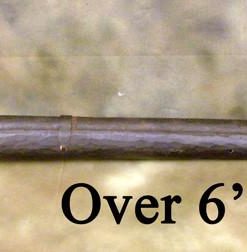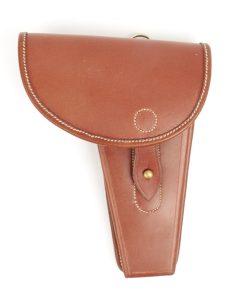Original Belgian Post WWII British Style Paratrooper Helmet with Camouflage Pattern – Paracommando Regiment Original Items
$ 295,00 $ 118,00
Original Item: Only One Available. This is a fantastic example of a 1950s Belgian made Paratrooper Helmet which was modeled after the British WWII Mk. II paratrooper helmet. Often you encounter these helmets with the Belgian flag removed on the sides of the helmet, just like this one, to pass off as a British one. This example also has a great applied-camouflage pattern.
These would have been issued to not only paratroopers but to armored troops, or more specifically troops with motor transport or SP artillery. It is known in Belgium as the ‘Recce’ helmet, which implies it was used by recon troops, scout cars, armored cars and so on.
The helmet is in lovely condition and shows signs of a long service use as these were used for over 20 years. It appears to be complete and without any extensive damage. The leather is still supple but the padding has become somewhat hard and degraded a little. The helmet’s size, 56, has been written on the liner several times.
The camouflage pattern is a two-tone green with beautiful streaks, still in great condition. Comes ready for further research and display.
The Special Operations Regiment is an elite fighting force in the Belgian Land Component, consisting of two paracommando battalions, the Special Forces Group and a support unit of the Communication & Information Systems Group (CIS). Known until 2003 as the Para-Commando Brigade, and later as the Light Brigade. On 3 July 2018, the Light Brigade transformed into the Special Operations Regiment.
During the Second World War, parachutist and commando units were founded in Great Britain. In 1942, the first Belgian commandos started training to serve in the No. 10 (Inter-Allied) Commando. Also that year, some Belgian soldiers underwent parachute training. These paras served in the Belgian 5th Special Air Service which was under the command of the famous Eddy Blondeel. Both units executed numerous raids and important missions.
In 1952, these parachutist and commando units were brought together in a Para-Commando Regiment. Later, an antitank company, a field artillery battery and a reconnaissance squadron were added. In November 1991, the Para-Commando Regiment became a brigade by adding new support units.’ By 2003, the Brigade was disbanded. The Para-Commando units (1st Parachute Battalion (Belgium), 3rd Parachute Battalion (Belgium), 2nd Commando Battalion (Belgium)) formed together with 12/13th Battalion of the Line the new ‘Light Brigade’.
In 2018, the Light Brigade was transformed into the Special Operations Regiment. The regiment consists of the two remaining Para-Commando battalions (3Para, 2 Commando), the Special Forces Group (Belgium), a support unit of the Communication & Information Systems Group, the training center for Parachutists and the training center for Commandos. The 12/13th Battalion of the Line was transferred to the Motorized Brigade (Belgium).
The Paracommando battalions work closely with the Belgian Air Force’s 15th Transportation Wing, who operate the Lockheed C-130 Hercules transport aircraft.
From 1953, the commandos participated actively in the “African period” with numerous detachments destined for the base at Kamina (BAKA) in the Belgian Congo. After the riots of January 4, 1959, the 2nd Commando Battalion was dispatched urgently to Léopoldville where it was stationed for about a month. A cadre party and other elements later formed the 4th Commando Batallion which was stationed at Kitona in Bas-Congo.
Fast Shipping with Professional Packaging
Thanks to our longstanding association with UPS FedEx DHL, and other major international carriers, we are able to provide a range of shipping options. Our warehouse staff is expertly trained and will wrap your products according to our exact and precise specifications. Prior to shipping, your goods will be thoroughly examined and securely secured. We ship to thousands clients each day across multiple countries. This shows how we're dedicated to be the largest retailer on the internet. Warehouses and distribution centres can be located throughout Europe as well as the USA.
Note: Orders with more than one item will be assigned a processing date depending on the item.
Before shipping before shipping, we'll conduct a thorough inspection of the items you have ordered. Today, the majority of orders will be delivered within 48 hours. The delivery time will be between 3-7 days.
Returns
The stock is dynamic and we cannot completely manage it because multiple stakeholders are involved, including our factory and warehouse. So the actual stock may alter at any time. It's possible that you may not receive your order once the order has been made.
Our policy is valid for a period of 30 days. If you don't receive the product within 30 days, we are not able to issue a refund or an exchange.
You can only return an item if it is unused and in the same state as the day you received it. You must have the item in its original packaging.
Related products
Uncategorized
Uncategorized
Uncategorized
Uncategorized
Australian WWII Owen MK1 Machine Carbine SMG Custom Fabricated Replica with Sling Original Items
Uncategorized
Uncategorized
Uncategorized
Uncategorized
Uncategorized
Armored Burgonet Helmet & Polearm from Scottish Castle Leith Hall Circa 1700 Original Items
Uncategorized
Uncategorized
Uncategorized
Uncategorized
Uncategorized
Uncategorized
